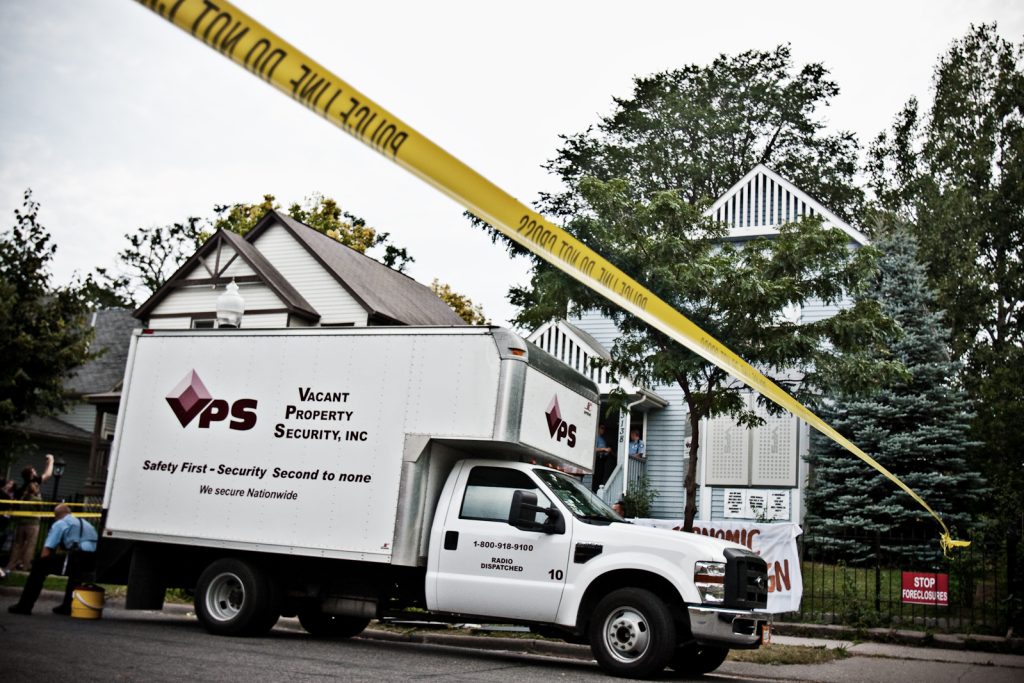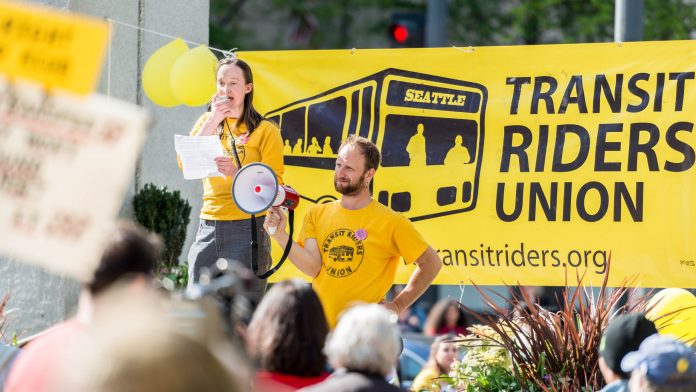At month’s end, the eviction moratorium is scheduled to expire, which would put thousands of tenants at risk. A broad coalition spearheaded by the Transit Riders Union (TRU) is urging a nine-month extension of Seattle’s moratorium as soon as possible to ease worries for tenants. The Urbanist joined 46 other organizations–including unions, homelessness service providers, tenant advocates, and immigrant rights groups–in signing the letter addressed to Mayor Jenny Durkan.
“Not knowing whether moratoriums will be extended, sometimes until the last minute, has added to the stress of tenants who are at risk of eviction,” their letter states. “Therefore, we ask you to act swiftly in extending the moratorium, doing so in early March rather than waiting until a week or two before the expiration date.”
Moreover, the advocates are urging the government to come up with more rent relief so that tenants can shed the burdens of their housing debt accrued over the yearlong moratorium, with jobs scarce and hours scaled back.
Washington state also has an eviction ban expiring at month’s end, and they seem less sanguine about the prospects of a statewide extension.
“We are concerned that the statewide eviction moratorium may not be extended beyond March 31 or, if it is, may only be extended for a short period of time,” the letter said. “This makes it all the more important that Seattle step up and lead, standing up for tenants and small businesses and protecting vulnerable communities. Please act without delay to extend Seattle’s eviction moratorium through the end of 2021.”
Katie Wilson, general secretary of TRU, laid out a compelling case for extending the moratorium in her Crosscut column.
“The eviction moratoriums have undoubtedly saved many thousands of lives,” Wilson wrote. “According to one recent study, ‘policies that limit evictions are found to reduce COVID-19 infections by 3.8% and reduce deaths by 11%.'”
Evictions hit people of color hardest
Evictions are among our largest sources of homelessness. A 2018 Housing Justice Project study titled Losing Home: The Human Cost of Eviction in Seattle found that 87.5% of evicted tenants become homeless, as Wilson cited–and 37.5% of them went completely unsheltered. The racial disparity is also staggering. That same study found a majority (51.7%) of evicted tenants were people of color, and “31.2% were Black tenants, experiencing eviction at a rate 4.5 times what would be expected based on their demographics in Seattle.”
Even before a global pandemic became a risk factor, evictions contributed to the death of six tenants in the 2017 data. After being evicted, four committed suicide, one died of an accidental overdose, and one died in hospice, the study notes.

From a practical standpoint, lifting of the eviction moratorium without a plan and off-ramp in place represents a huge logistical nightmare. It’s unlikely there are enough defense lawyers to go around, and some landlords may take advantage of the chaos to rush evictions through or make illegal demands of their tenants.
“Our residential landlord-tenant act never imagined–ever–that there’d be a circumstance where nearly 200,000 renters couldn’t pay rent at the same time,” Representative Nicole Macri (D-Seattle) said in a Crosscut article on the threat of mass evictions.
Rep. Macri introduced a bill (House Bill 1236) requiring that landlords demonstrate a business reason for evictions and closing a loophole in local “just cause” eviction laws that allows landlords to evict if a fixed lease is up. Meanwhile, Senator Patty Kuderer (D-Bellevue) authored Senate Bill 5160, which would boost tenant rights by requiring our eviction process to include the right to a payment plan for renters, the right to legal counsel, and solutions to prevent the harmful effects of debt.
“210,000 [Washington households] said they had ‘no confidence’ in their ability to make next month’s rent, while many more had only ‘slight’ to ‘moderate’ confidence,” David Kroman reported last month. “At the same time, an estimated 400,000 households are relying on short-term debt–credit cards and payday loans, mostly–to cover their daily living expenses, including rent.”
The latest federal Covid relief package will help, but not nearly enough to clear up debts for low-income tenants. “The staggering amount of estimated rent debt means that even the $365 million in federal rent relief soon to be appropriated by the Legislature likely falls well short of what’s needed,” Kroman wrote.
Small business lifeline
Wilson highlighted the benefit to small businesses and nonprofits that Seattle’s eviction ban (which also covers them) has had and stressed the need for more stability through an extension for them too. A recent poll found that 34% of Washington small businesses could not make their rent in the month of January.
Small business displacement could add to an already precarious situation for their workers. That’s why the Washington Hospitality Association supports extending the moratorium for both small businesses and housing tenants. Wilson spoke with Steven W. Hooper, Jr., president of Ethan Stowell Restaurants and a board member of the Seattle Restaurant Alliance (a branch of the Washington Hospitality Association) for her column.
“We need a global conversation about how to deal with this for the rest of the crisis, however long that ends up being,” Hooper said. “The eviction moratorium should last at least as long as the crisis does, and then there should be some period of time for people to pay that stuff back.”
A time for compassion, not debt collectors
If we lift the ban without robust rent relief and before the restaurant, tourism, and brick-and-mortar retail sector recovers, we will be sentencing thousands of workers to evictions, displacement, and homelessness. Is this how we want to punctuate our response to this crisis? Is this how we heal as a society?
“Hospitality and food service workers have been pummeled by the virus and the recession over the last year, and the overwhelming majority are still unemployed,” said Stefan Moritz, Secretary Treasurer of UNITE HERE Local 8, in a statement. “Thousands of workers remain in very precarious situations as they wait for an economic recovery that will bring them back to work. They must not face the risk of losing their housing, and they deserve the peace of mind that comes from knowing their housing is secure through the end of the year.”
This virus caught our government flatfooted, and 5,000 Washingtonians have died as Covid has persisted in our communities. State leaders mostly rose to the challenge given a tough situation with an inept halfhearted response from the Trump administration. However, if we let evictions proceed in 2021, we won’t have the pandemic or a previous administration to blame for the ensuing suffering and death. That will be on us–self-inflicted wounds doled out in the name of greed.
Doug Trumm is publisher of The Urbanist. An Urbanist writer since 2015, he dreams of pedestrian streets, bus lanes, and a mass-timber building spree to end our housing crisis. He graduated from the Evans School of Public Policy and Governance at the University of Washington in 2019. He lives in Seattle's Fremont neighborhood and loves to explore the city by foot and by bike.



